
by Chris Limantour | May 9, 2024 | BMW Repair
Engine ticking is a sound that you get from the BMW engine, particularly when the car is at idle or when you are accelerating. This sound can range from a minor clicking sound to a louder ticking sound. It is usually described to be similar to the sound that is produced by a sewing machine.
This ticking noise can be somewhat alarming, but knowing why it occurs and when you should be concerned is crucial. Below is a guide to how you can handle BMW engine ticking issues.
What Causes Engine Ticking in BMWs?
- Faulty Lifters: Valves are used in the engine and lifters assist in opening and closing of the valves. If they get damaged or become old they can produce a ticking sound. Lifters depend on the oil pressure to function effectively and when there is a slight variation, then you will hear this irritating noise.
- Fuel Injectors: Your BMW fuel injectors can also cause a ticking sound. The injector usually gives a sound when it is running as it strives to inject fuel into the engine’s cylinders. However, if the ticking noise increases beyond the normal levels, it may be an indication of a problem such as the build-up of dirt or a faulty mechanism influencing the injectors.
- Exhaust Leaks: An exhaust leak can cause a ticking sound especially when the engine is cold. This noise is usually because of a crack or hole in the exhaust manifold or because of a leak at the manifold gasket. The sound could decrease as the metal part warms up but that is not a solution to the problem because the leak has to be fixed.
- Timing Chain Issues: Timing chain ensures that the valves and pistons of the engine are always moving in harmony. The chain might become loose or worn and cause a ticking sound.
Tips for Repairing Engine Ticking Problems
- Top Off or Change the Oil: If the ticking noise is because of low oil then pouring oil to the right level can help to solve the problem. You should also make sure that the oil is changed if needed. Selecting the appropriate oil for your BMW is significant in the proper working of the engine and its durability. The type of oil to use and the time to change it depends on the vehicle owner’s manual.
- Replace Hydraulic Lifters: In a case where worn or clogged lifters are the cause of the ticking noise, then the hydraulic lifters will have to be replaced. Hydraulic lifters are very important in ensuring that there is adequate clearance between the valves and the camshaft. If they fail, a noticeable ticking sound is produced by the vehicle’s engine. Replacing hydraulic lifters is often a complicated procedure that requires the dismantling of some of the engine components; so, it is always advisable to consult a professional mechanic to have the work done.
- Repair or Replace the Timing Chain: If the timing chain is slippery or slack, then it may need to be adjusted or replaced. This is a major repair job that usually needs an auto mechanic.
- Fix Exhaust Leaks: If you have diagnosed your BMW with an exhaust leak, then you can fix the exhaust manifold gasket or the manifold to eliminate the ticking sound. It has the potential to enhance the performance and efficiency of the engine as well as the overall performance of the vehicle.
- Clean or Replace Fuel Injectors: If the sound being produced is from the fuel injectors, then it means it might be dirty and will require a cleaning or a replacement. Deposits in injectors can be removed with special injector cleaning fluids or by taking them to a reputable service provider.

Find Out Why BMW Drivers Trust Us In Hellertown
If you are looking for an automotive shop that you can trust for your BMW, Audi, Mercedes, and Tesla repair in Hellertown, PA, then you should come to JCL Automotive. We are equipped with all the necessary tools to perform all services to the highest standard required in the automobile industry.
It is recommended that you take your BMW to a mechanic as soon as you hear any strange or loud sound. Prevention is better than cure, therefore early detection and repair will help avoid more severe problems later on. Give us a call today at 484-851-3390 for BMW inspection and repair.
* Man Driving BMW 7 Series Car image credit goes to: Alexandr Baranov.

by Chris Limantour | Mar 2, 2024 | BMW Repair
Of late, have you been battling a stalling issue when driving your BMW??? From a carbon fouled spark plug to a clogged fuel injector; there are all sorts of reasons why your engine may behave this way. High pressure fuel pump (HPFP) failure is one possibility. Yup, you read that right… a glitch in your BMW’s HPFP may contribute to repeated stalling. Some of the other common complications that you might have to deal with if your vehicle’s HPFP gives up have been discussed below.
BMW High Pressure Fuel Pump Malfunction: Discussing Complications
Being a key component of your BMW’s fuel system, HPFP is entrusted with a very simple task… which is to deliver pressurized fuel (2,200 to 3,000 PSI) to the injectors. It is because of this part that your BMW engine operates with such a high efficiency. Should this device give up, you will encounter all sorts of drivability problems.
#1- No-start issue
Reviving your BMW engine won’t be an easy task if there is something off with its HPFP. Fuel, air, and electric sparks: these are three ingredients that an internal combustion engine need to start the combustion process so that mechanical torque can be produced. If the HPFP is defective, the engine won’t get enough fuel to initiate the ignition process.
#2- Engine misfire
This is yet another major issue that you might have to deal with because of a defective HPFP. Engine misfire can be defined as a condition when one of the cylinders doesn’t fire the way it is supposed to. Some of the hurdles that may contribute to engine misfire in a BMW include a worn spark plug, a damaged fuel injector, a malfunction in the air-intake system, and yes… a defective HPFP.
#3- Sudden power loss while driving
Off late, has your BMW been struggling to run at a steady speed??? If so, there is a good chance that its HPFP has given up. HPFP is the reason why your car engine gets all the fuel it need to provide you with the requisite torque. If the engine doesn’t receive the necessary amount of fuel because of a defective HPFP or any other reason, your BMW will have a hard time operating at a steady speed.
#4- Increased fuel consumption
Are you getting poor gas mileage? As strange as it may seem, a defective HPFP may prompt your BMW to burn fuel at an alarming rate. The issue will only get worse over time. So, if you don’t want this unexpected drop in your BMW’s gas mileage, ensure the upkeep of its fuel pump.
Leading Causes Of High Pressure Fuel Pump Failure In BMW Cars
#1- Mechanical damage
The HPFP your BMW comes fitted with is a very complicated device made up of many different parts including a pressure spring, pressure control valve, coil body, oil seal, mounting flange, roller tappet, etc… If for some reason the pressure control valve acts up or the pressure spring gets damaged, the HPFP’s ability to provide pressurized fuel to the injectors will drastically reduce.
#2- Contaminants
This is yet another leading reason behind HPFP failure in BMW cars. Being a mechanical device made of numerous metallic parts of different shapes and sizes, HPFP can malfunction if gets exposed to contaminants. Fortunately, there are many different things that you can do to safeguard your vehicle’s HPFP against foreign elements.
#3- Lack of lubrication
Not using the right type of lubricant, as recommended by the manufacturer, can also result in premature HPFP failure in a BMW car. It is therefore important that you check on your vehicle’s lubricants from time to time and make sure that the engine and other important parts of your BMW never run low on lubricant.
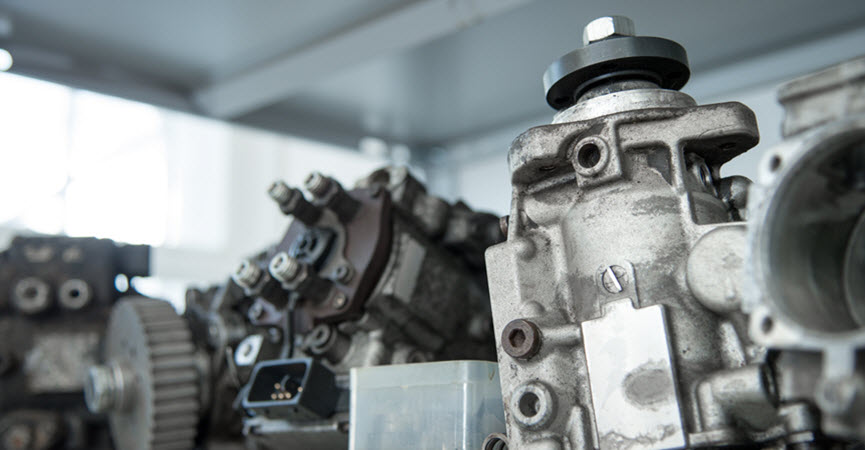
Fix Your BMW’s High Pressure Fuel Pump Issues At JCL Automotive
You will battle all sorts of drivability problems if your BMW’s high pressure fuel pump malfunctions. Located in Hellertown, PA, JCL Automotive is your go-to destination when it comes to addressing high-pressure fuel pump related issues. Professionals employed in our service center have years of experience in repairing European vehicles- especially Audi, BMW, and Mercedes.
Contact us today and book an appointment to have your BMW’s high pressure fuel pump checked by our certified professionals. You won’t be disappointed.

by Chris Limantour | Jan 28, 2024 | BMW Repair
When it comes to maintaining the optimal performance of your BMW, understanding the health of various components is crucial. One such component is the front tension strut bushing, often overlooked but vital for vehicle stability and handling.
Understanding Front Tension Strut Bushings
Before diving into the symptoms of failure, it’s important to understand what front tension strut bushings are and their role. These bushings, made of rubber or polyurethane, are integral parts of your BMW’s suspension system. They cushion and reduce friction between the metal parts of the suspension, aiding in absorbing shocks from road irregularities and contributing to a smoother ride.
Common Signs of Failure
- Unusual Noises: One of the first signs you might notice is unusual noises coming from the front of the vehicle, especially when driving over bumps or during turning. These can be clunks, creaks, or banging sounds. These noises occur because the bushing, which usually acts as a buffer, is worn out, causing metal-on-metal contact.
- Vibrations and Steering Wheel Shuddering: As the bushings wear out, you may feel vibrations through the steering wheel, particularly at higher speeds or when accelerating. This happens because the bushings are no longer effectively damping the vibrations from the road.
- Imprecise Steering: Worn bushings can lead to a lack of steering precision. You might find that your BMW doesn’t handle corners as well as it used to, or there’s a noticeable delay in steering response. This is because the bushings, which help maintain proper alignment of suspension components, are no longer performing effectively.
- Uneven Tire Wear: Another symptom of failed bushings can be uneven tire wear. Since the bushings help keep the wheels aligned, their failure can lead to misalignment, resulting in uneven wear on your tires.
- Visual Inspection: Sometimes, the bushing wear can be evident upon visual inspection. If you see cracking, tearing, or fluid leakage around the bushing, it’s a clear sign that they need to be replaced.
Why It Matters
Ignoring these signs can lead to more significant issues. Worn bushings affect the handling and stability of your BMW, which can compromise your safety. Additionally, the longer these problems are left unaddressed, the more likely they are to cause damage to other suspension components, leading to more expensive repairs.
Diagnosis and Repair
If you suspect your BMW has front tension strut bushing failure, the best course of action is to have it inspected by a qualified mechanic or a BMW specialist. They will be able to confirm the diagnosis and replace the bushings if necessary. It’s worth noting that the complexity of BMW’s suspension system often requires specialized knowledge and tools.
Preventive Measures
Preventive maintenance can help extend the life of your front tension strut bushings. This includes regular inspections, proper wheel alignments, and avoiding harsh driving conditions when possible. Additionally, being aware of the type of bushings your BMW uses can also be beneficial. For example, polyurethane bushings may offer longer life and better performance but may also come with a firmer ride compared to rubber bushings.
Maintain Your BMW’s Performance And Safety
Keeping an eye out for the signs of front tension strut bushing failure in your BMW is crucial for maintaining its performance and safety. Unusual noises, vibrations, steering issues, and uneven tire wear are key indicators.
Regular inspections and timely repairs are essential in preventing more significant issues down the road. By staying attentive to these signs, you can ensure your BMW continues to deliver the exceptional driving experience it’s known for.
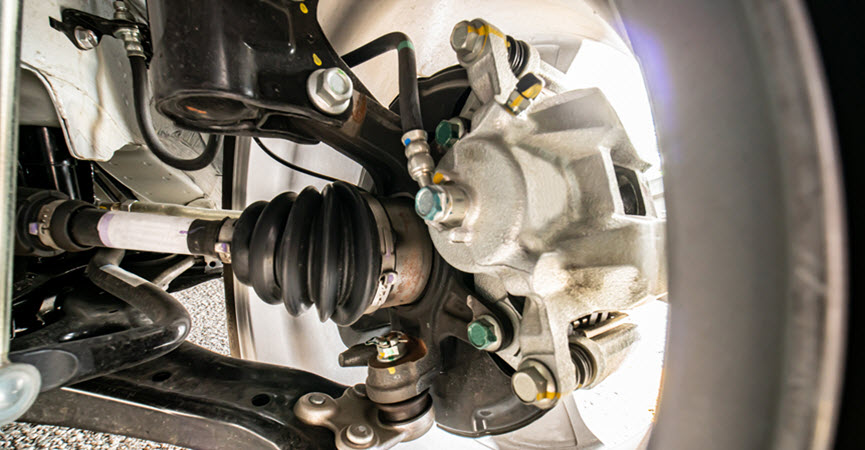
Contact JCL Automotive Today
Contact us at JCL Automotive, situated in the heart of Hellertown, PA, for expert solutions to your BMW’s front tension strut bushing failure. Our team of specialized technicians is adept in handling this specific issue, ensuring that your BMW regains its optimal performance and smooth handling. The front tension strut bushing is crucial for maintaining the stability and alignment of your vehicle, and its failure can lead to uneven tire wear, poor handling, and an uncomfortable ride.
At JCL Automotive, we use state-of-the-art tools and genuine BMW parts to guarantee a high-quality repair. Don’t let a faulty front tension strut bushing compromise your driving experience. Reach out to us for professional, reliable service that restores your BMW to its pristine condition.

by Chris Limantour | Nov 21, 2023 | BMW Repair
A leak in your BMW’s vacuum hoses can lead to various automotive troubles. The vacuum hose plays a significant role in the operation of numerous systems in your BMW, including power brakes, emission control, and more.
Vacuum hose leaks occur when the rubber hoses in your BMW’s vacuum system degrade, crack, or develop holes over time. Detecting and addressing these leaks is essential, as they can lead to various issues, such as decreased engine power, poor fuel efficiency, and a variety of other operational problems.
How Does the Vacuum Hose System Work?
The vacuum hose system operates on a simple yet fundamental principle: the movement of air and the creation of a vacuum. It’s a network of rubber or plastic hoses that connect to various components throughout the vehicle, particularly the engine. These hoses transport air or vacuum pressure, which is essential for the proper functioning of several systems.
Here’s an overview: The vacuum hose system relies on the engine’s intake manifold to create a vacuum. When the engine runs, it generates a partial vacuum in the intake manifold by drawing in air. The vacuum hoses connected to the intake manifold distribute the vacuum pressure to different components, each with its unique purpose. Some of the main systems that depend on the vacuum system include power brakes, power windows, emission control, HVAC (Heating, Ventilation, and Air Conditioning), and more.
When vacuum pressure is applied, it activates specific components. For instance, in power brakes, the vacuum assists in applying force to the brake pedal, making it easier for the driver to apply brakes effectively.
How To Know If There’s a Vacuum Hose Leak
Identifying a vacuum hose leak can indeed be challenging, as the symptoms can manifest differently depending on which hoses are affected and the extent of the leak. Here are some common signs to watch for:
- Engine Stalling: When there’s a significant vacuum hose leak, the engine might stall or shut off unexpectedly. This occurs because the vacuum system is compromised. The vacuum hose is responsible for providing a controlled vacuum to engine components like the fuel pressure regulator. When there’s a leak in the vacuum hose, it disrupts the balance and can cause the engine to stall due to improper air-to-fuel mixture.
- Difficulty Starting the Engine: The vacuum system helps in maintaining the correct air-to-fuel ratio required for ignition. A leak can lead to an incorrect mixture, causing the engine to crank longer before starting or requiring multiple attempts to fire up.
- Rough Idling: The vacuum hose also maintains engine stability and smooth idling. When there is a vacuum leak, the engine may run unevenly with noticeable vibrations and fluctuations in RPM. The engine struggles to maintain a consistent idle speed, leading to rough idling.
- Hissing Noises: A hissing or whistling sound originating from the engine compartment is a clear indicator of a vacuum hose leak. This sound is the result of air escaping from the damaged or disconnected vacuum hose, and it’s often the first auditory clue that something is amiss with the vacuum system.
- Hard Brake Pedal: In many vehicles, the vacuum hose is connected to the power brake booster, which assists in applying the brakes. If this vacuum hose leaks, you may experience a stiff brake pedal. The power brake booster relies on vacuum pressure to provide added braking assistance.
Fixing Vacuum Hose Leak In BMW
The most straightforward and cost-effective solution for rectifying a vacuum hose leak is to replace the entire hose. Initially, this may appear to be a simple task, and indeed, it is for seasoned mechanics. Nevertheless, if you have limited experience in engine repairs, it is strongly advised against attempting the repair independently, as this could potentially result in harm. Instead, it is recommended to seek the services of a reputable mechanic who can expertly handle the hose replacement procedure on your behalf.
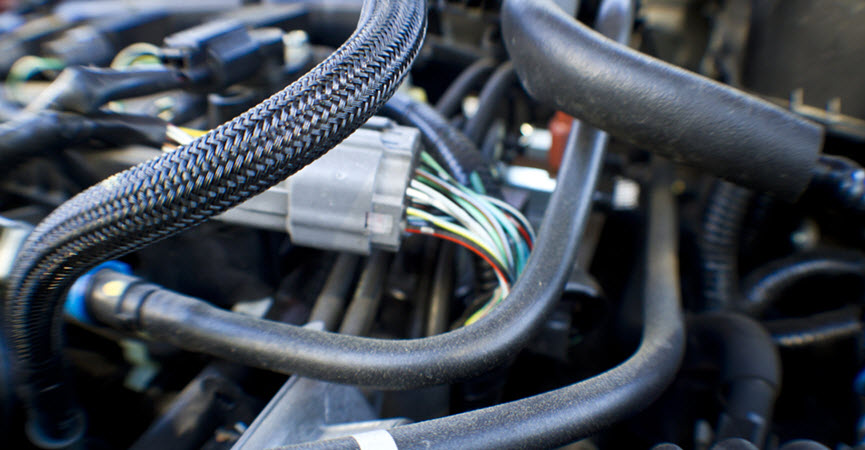
Call On Our Experts at JCL Automotive
At JCL Automotive, we are dedicated to providing expert care for your BMW, especially when it comes to addressing vacuum hose leaks. With a team of skilled professionals and a commitment to serving drivers in Hellertown, PA, and the surrounding areas, we are here to ensure your vehicle continues to run at its best. Call us now to schedule your BMW service.
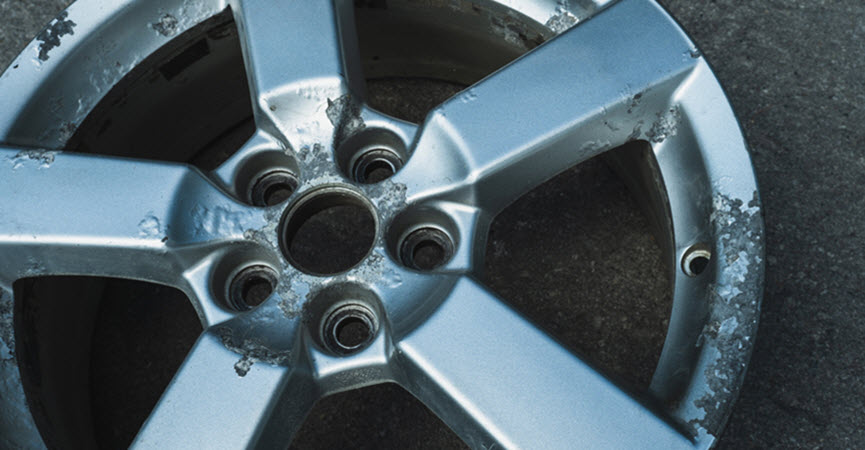
by Chris Limantour | Aug 11, 2023 | BMW Repair
When you’re cruising down the road in your BMW, the last thing you want to worry about is the health of your alloy wheels. However, these stylish and lightweight wheels are not just about looks. They play a pivotal role in the overall performance, safety, and aesthetics of your car. Cracked alloy wheels can be a BMW owner’s nightmare, affecting everything from your driving experience to your wallet.
As a BMW owner, it’s extremely important to maintain intact alloy wheels, since there are plenty of potential risks that cracked wheels pose. Knowing what to look for and addressing the issue right away when you notice it will benefit you, your car, and your pockets in the long run.
Understanding Cracked Alloy Wheels
Alloy wheels are a blend of aluminum and other metals, designed to be both strong and visually appealing. When we talk about cracked alloy wheels, we’re referring to wheels that have suffered damage resulting in visible cracks on their surface. These cracks can stem from a variety of sources, including hitting potholes, encountering road debris, and unfortunate run-ins with curbs.
The Risks Cracked Wheels Present
Driving with cracked alloy wheels poses an array of risks, the most prominent being compromised structural integrity. The initial crack can spread due to the pressures of driving, leading to further fractures or complete wheel failure.
Furthermore, the loss of air pressure due to cracks can result in underinflated tires, adversely affecting fuel efficiency, handling, and safety. Additionally, the imbalance created by a cracked wheel can cause uneven tire wear, further reducing the lifespan of both the wheels and tires.
Benefits of Swift Repairs
Taking immediate action to repair cracked alloy wheels offers a myriad of advantages. First and foremost, it prevents the cracks from expanding, nipping the problem in the bud and saving you from costly repairs down the road.
By addressing the issue promptly, you ensure the longevity of your wheels and maintain the security of your car’s occupants. Timely repairs also preserve the overall performance of your BMW, preventing issues such as vibrations, poor steering response, and compromised handling.
The Repair Process Unveiled
Fixing cracked alloy wheels is a multi-step process that demands professional expertise. Here’s an in-depth look at what goes into rectifying this issue:
- Thorough Assessment: The initial step involves a meticulous examination of the extent of the damage. This assessment helps determine whether the wheel can be repaired or if a replacement is the better route.
- Wheel Removal: The affected wheel is taken off the car, and the tire is dismounted to provide complete access to the wheel’s surface.
- Welding or Filling: Depending on the severity of the cracks, two primary repair methods are employed. Welding involves melting the alloy to seal the cracks, while filling utilizes specialized compounds to achieve a similar effect.
- Machining: After the necessary repairs, the wheel undergoes machining to ensure a smooth and even surface. This step is crucial for proper tire seating and wheel balance.
- Restoration: The repaired wheel is refinished to restore its original appearance. This includes painting or applying coatings to match the rest of the wheels.
- Balancing Act: Once the repaired wheel is back on your BMW, it’s balanced to perfection. This process ensures even weight distribution, eliminating vibrations during driving.
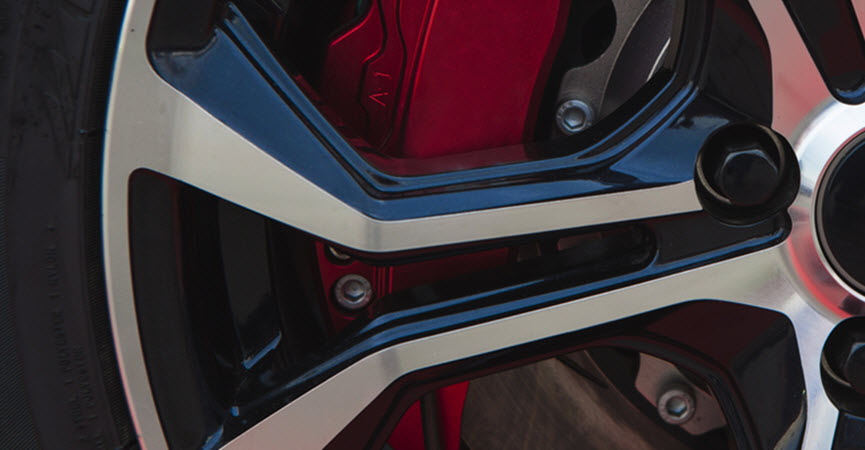
How to Resolve Cracked BMW Alloy Wheels
Cracked alloy wheels are not just an aesthetic concern; they can severely impact your BMW’s performance, safety, and overall driving experience. If you find yourself grappling with this issue in Hellertown, PA, our team of professionals at JCL Automotive stands ready to assist. We love BMWs as much as you do, and we want you to have the best parts, service, and repair from mechanics you can trust.
We will care for your cracked alloy wheel concerns promptly and completely, answering all your questions along the way. We can also help you maintain your BMW to avoid similar problems in the future. You and your car deserve the best. Reach out to us today to benefit from our professional expertise. Let us help you restore your BMW’s wheels to their optimal condition, ensuring both your safety and driving pleasure.
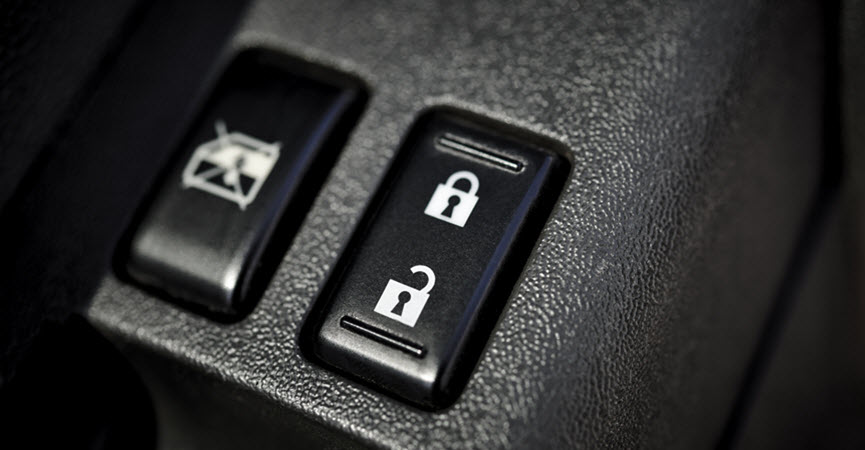
by Chris Limantour | Jul 25, 2023 | BMW Repair
Have you ever been in a situation where you could not lock your doors or struggled to unlock them when you needed to access your BMW? If you answered yes, then you’re in the right place. Door lock failure in BMW can be a very frustrating issue and even pose a risk to your belongings and personal safety.
Here are the most common causes and symptoms of BMW door lock failure and get useful insights on how to tackle the problem:
Worn Door Lock Actuator
The door lock actuator plays a crucial role in the mechanical operation of locking and unlocking the doors. With frequent use over time, the door lock actuator can become worn or fail. This can result in difficulty or an inability to lock or unlock the doors using the key fob or the interior door switch.
Electrical Malfunctions
BMW vehicles are equipped with advanced electrical systems that control various functions, including door locks. Electrical malfunctions can arise due to several factors, such as faulty wiring, blown fuses, or a malfunctioning control module. These issues can disrupt the proper functioning of the door locks and make it fail. For example, a damaged wire connection can interrupt the flow of electrical signals required to engage the door lock mechanism.
Key Fob Battery Issues
Door lock failure can sometimes be attributed to a weak or depleted battery in the key fob. The key fob sends signals to the car’s central locking system to lock or unlock the doors remotely. When the battery’s power is low, the key fob may not transmit signals effectively, leading to a communication failure with the car’s central locking system. As a result, the doors may not lock or unlock as intended, causing inconvenience and potential security concerns.
Understanding these causes of BMW door lock failure is essential for diagnosing and addressing the issue promptly. If you encounter difficulties with your door locks, it is recommended to consult with a professional technician who specializes in BMW repairs.
How to Identify Door Lock Failure
- Unresponsive Door Locks: One of the most common signs of door lock failure is unresponsive locks. You may find that the doors do not lock or unlock when you press the key fob button or use the interior switch.
- Intermittent Locking/Unlocking: Door locks can also manifest as intermittent locking or unlocking. The locks may work sporadically, making it difficult to predict when they will function properly.
- Stuck Locks: Another indication of door lock failure is when the locks become stuck or jammed. You may have difficulty turning the key in the lock cylinder or experience resistance when trying to lock or unlock the door.
Preventive Measures
- Gentle Handling: Handle the doors with care and avoid slamming them shut. Excessive force can put unnecessary strain on the door lock mechanisms and potentially lead to premature failure. Encourage passengers, especially children, to be mindful of closing the doors gently.
- Avoid Overloading: Be mindful of the weight you place on the doors, especially when parked on uneven surfaces or slopes. Overloading the doors can put excessive stress on the locking mechanisms.
- Regular Lubrication: Periodically lubricate the door lock mechanisms with a recommended lubricant. This helps maintain smooth operation and reduces friction that can contribute to lock failure.
Tackling Failed Door Lock Issue
- Verify the Issue: Confirm that it is indeed a door lock failure and not a related problem, such as a faulty key fob or a dead battery. Check if the issue persists with multiple key fobs, and try replacing the battery in your key fob if necessary.
- Check Fuses: Take your vehicle to a mechanic so they can Inspect the fuse box for any blown fuses related to the door locks. Replace any blown fuses with ones of the correct rating.
- Wiring Inspection: Your mechanic can also examine the wiring connections related to the door system. Loose or damaged wires can cause intermittent or complete failure. Ensure all connections are secure and free from corrosion.
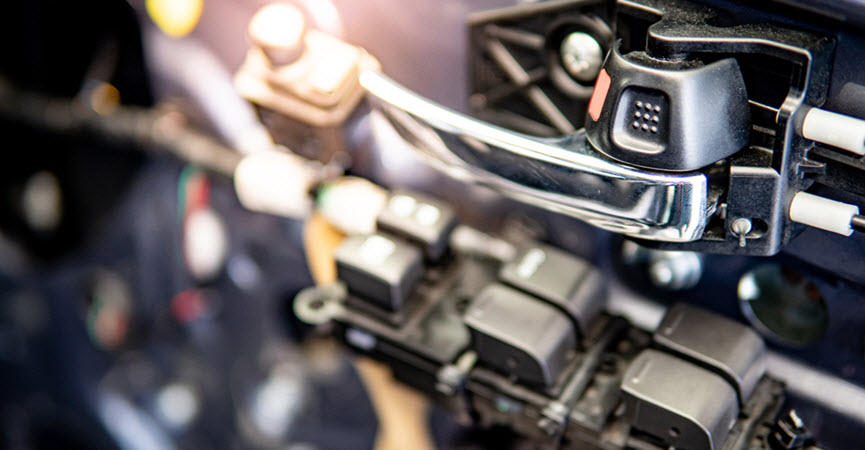
Get Help from the Technicians at JCL Automotive
BMW door lock issues can be effectively addressed if you bring your BMW car or SUV to our workshop. At JCL Automotive, we specialize in BMW repairs and have the expertise to diagnose and resolve any issues you might be experiencing. We proudly serve drivers in Hellertown, PA and the surrounding towns and neighborhoods. Book an appointment with us now, and let us help you get back on the road with properly functioning door locks.

by Chris Limantour | May 18, 2023 | BMW Repair
VANOS is an acronym for VAriable NOckenwellen Steuerung, which is German for variable camshaft control. The VANOS system is a critical component of BMW engines that allows for variable valve timing, which enhances the engine’s power, efficiency, and overall performance. Unfortunately, the VANOS system can develop issues over time that can negatively affect the engine’s performance.
How Does the VANOS System Work?
The VANOS system works by using solenoid valves to control oil pressure to a hydraulic actuator, which adjusts the position of the camshaft. The system uses sensors to determine the engine’s current operating conditions and adjusts the camshaft’s position accordingly. The VANOS system can adjust the intake & exhaust valve timing separately, which allows for greater flexibility in optimizing engine performance.
Common Issues with the VANOS System
The VANOS system can develop issues that can negatively affect the engine’s performance. Some common issues with the VANOS system include the following:
VANOS Failure
One of the most common issues with the VANOS system is complete failure. If the VANOS system fails, the engine may experience a loss of power, reduced fuel efficiency, or difficulty starting. This can be caused by a number of factors, such as;
- Faulty solenoid valve: this can cause the VANOS system to fail because it controls the oil flow to the hydraulic actuator. If the solenoid valve is faulty, it may not open or close properly, which can cause a loss of oil pressure and VANOS failure.
- Clogged oil passage: The oil passages in the VANOS system are small and can become clogged over time, which can cause a loss of oil pressure and VANOS failure.
- Worn actuator piston: The actuator piston is a critical component of the VANOS system and can wear over time, causing the system to fail.
VANOS Noise
Another common issue with the VANOS system is noise. If you hear a ticking or rattling noise from the engine, it could be a sign of a problem with the VANOS system.
VANOS Oil Leaks
Oil leaks are another common issue with the VANOS system. If you notice oil leaking from the VANOS system, it could be a sign of a faulty gasket or seal. The gaskets and seals in the VANOS system are exposed to high temperatures and can wear over time, causing leaks.
A cracked or damaged VANOS cover can also cause oil leaks in the system. The VANOS cover is a critical component of the system and can crack or become damaged over time. In addition, oil leaks can be caused by a damaged oil line in the VANOS system. If the oil line is damaged, oil can leak out and cause issues.
VANOS Sensor Issues
Finally, VANOS sensor issues can cause various problems with the system, and the engine may experience a loss of power or reduced fuel efficiency. This issue is usually caused by a faulty sensor or a wiring issue.
Faulty sensors can make the VANOS system begin to operate in an improper manner, and if the sensors are not working correctly, they may not be able to accurately measure the engine’s conditions, which can cause the system to make incorrect adjustments. If the wiring is damaged or not connected properly, the sensors may not work correctly, which can cause unpleasant issues with the system.
When you begin to encounter any of the issues listed above in your BMW, such as oil leaks, loss of power, reduced fuel efficiency, or difficulty starting. It is important to seek the help of a professional to assist you in diagnosing and fixing the issue in order to avoid any further damage to your car or SUV.

JCL Automotive Will Fix Any Issues In Your BMW
If you’re experiencing issues with your BMW’s VANOS system or any other car problems, JCL Automotive is here to help you fix the issue. Our team of experienced technicians is dedicated to providing high-quality repairs and maintenance services to residents in Hellertown, PA, and the surrounding areas. We use the latest diagnostic equipment and technology to accurately diagnose and fix any issues in your car. Don’t hesitate to book an appointment with us today to get your car back on the road in top condition.
* Grey BMW M5 Car image credit goes to: Brandon Woyshnis.
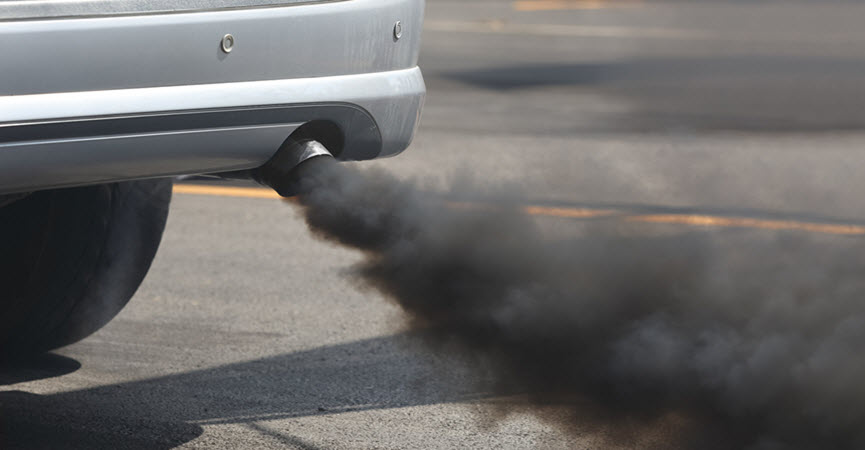
by Chris Limantour | May 1, 2023 | BMW Repair
The crankcase ventilation system plays a critical role in maintaining the health and performance of the engine in a BMW vehicle. A key component of this system is the crankcase ventilation valve, also known as the PCV (Positive Crankcase Ventilation) valve. It regulates the flow of gasses and vapors from the engine’s crankcase, preventing pressure build-up and ensuring proper combustion. However, over time, the PCV valve can malfunction, leading to potential issues.
Excessive Oil Consumption
One of the primary symptoms of a faulty PCV valve is excessive oil consumption. When the PCV valve malfunctions, it can lead to increased pressure inside the crankcase, causing oil to be drawn into the combustion chambers and burned along with the fuel. If you notice a sudden or significant decrease in your BMW’s oil levels between oil changes, it may indicate a problem with the crankcase ventilation valve.
Poor Engine Performance
A malfunctioning PCV valve can negatively impact the overall performance of your BMW’s engine. You may experience a decrease in power, reduced acceleration, or sluggish response. This can occur due to improper combustion caused by an imbalanced air-fuel mixture resulting from the faulty PCV valve. If you notice a significant drop in engine performance, it’s advisable to have the PCV valve inspected.
Increased Exhaust Smoke
When the PCV valve fails, it can cause an excessive amount of oil to be burned in the engine’s combustion chambers. This can result in a noticeable increase in exhaust smoke, particularly if the oil consumption is significant. The exhaust smoke may appear bluish or grayish and is most noticeable during acceleration or when the engine is under load. If you observe an unusual amount of smoke from your BMW’s exhaust, it’s crucial to have it checked by a qualified mechanic.
Rough Idle
A malfunctioning PCV valve can lead to a rough or unstable idle. You may notice the engine shaking or vibrating more than usual when the vehicle is stationary. The rough idle can be attributed to improper airflow and an irregular air-fuel mixture caused by the faulty PCV valve. If your BMW exhibits a rough idle, it’s recommended to have the PCV valve and associated components inspected and serviced.
Check Engine Light
In some cases, a malfunctioning PCV valve can trigger the check engine light (CEL) on your BMW’s dashboard. The engine control unit (ECU) detects irregularities in the engine’s performance and emissions, which can be caused by a faulty PCV valve. When the CEL illuminates, it’s important to have the vehicle scanned for trouble codes using a diagnostic tool. The codes will help pinpoint the specific issue, and a professional mechanic can then address the problem accordingly.
Increased Pressure in the Crankcase
The PCV valve regulates the pressure inside the engine’s crankcase. A malfunctioning PCV valve may result in increased pressure, causing oil leaks or seals to fail. You may notice oil leaks around the valve cover gasket or other engine seals. It’s important to address these leaks promptly to prevent further damage to engine components and to maintain proper lubrication.
Abnormal Noises
A faulty PCV valve can sometimes produce unusual noises from the engine compartment. You may hear a whistling or hissing sound, indicating a disruption in the airflow caused by the malfunctioning valve. Additionally, you might notice a slapping or ticking noise, which can be attributed to increased friction and improper lubrication due to excessive oil consumption. If you hear any unusual engine noises, it’s best to have them inspected by a professional.
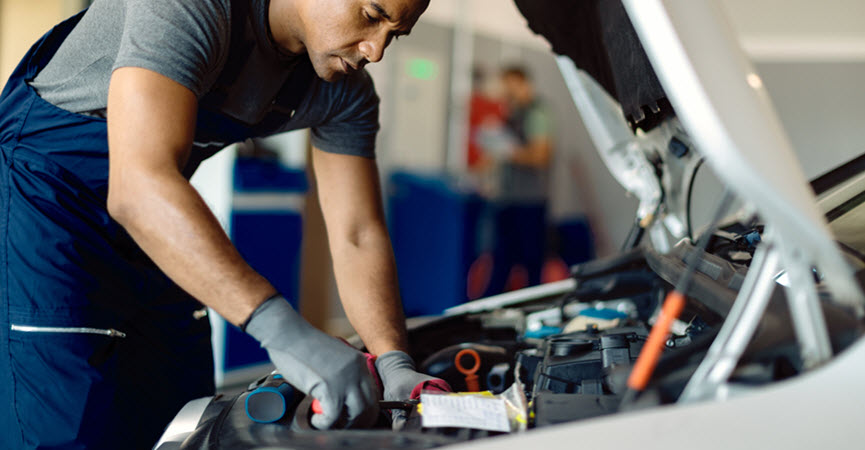
JCL Automotive: BMW Experts
As a BMW owner, you understand the importance of keeping your car in top condition. However, sometimes unforeseen issues may arise, such as a failing crankcase ventilation valve. If you suspect this may be the case for your beloved vehicle, don’t fret. At JCL Automotive, we specialize in BMW repairs and are here to help.
Our team of skilled technicians will diagnose and fix the issue promptly, leaving you with peace of mind knowing your car is in good hands. Serving clients from Hellertown, PA, we pride ourselves on our exceptional customer service and commitment to quality work. Don’t wait to bring your BMW in for maintenance – schedule an appointment with us today.

by Chris Limantour | Mar 11, 2023 | BMW Repair
One of the most common issues in a BMW is an electrical system failure. This can manifest in a number of ways, including dead batteries, malfunctioning power windows, and flickering headlights, and there are a number of reasons why this issue occurs.
In some cases, it’s simply a matter of an aging battery or a loose connection. In other instances, the issue may be related to a faulty alternator or starter. Additionally, electrical system failures can be caused by water damage or corrosion, which can damage electrical components. Let’s take a closer look at the top four culprits of electronic issues in your BMW.
Electrical System Failure
These types of problems have their root causes in the battery and alternator. These work together to both produce and distribute power to things like your starter, headlights, windows, dashboard, and car horn. These problems care pretty obvious and the most common complaint we see in our shop.
Engine Control Module Failure
The engine control module (ECM) is the computer that controls many of the functions of the engine, including fuel injection, ignition timing, and emissions control. When the ECM fails, it can cause a wide range of problems, including reduced engine performance, stalling, and difficulty starting. There are a number of reasons why the ECM may fail, including damage from voltage spikes, water damage, or simply wear and tear over time.
Transmission Issues
Another common electronic issue in BMWs is transmission problems. This can include issues with shifting gears, slipping gears, or a complete failure of the transmission. The causes of transmission issues in BMWs can vary, but they are often related to faulty sensors or problems with the transmission control module (TCM). In some cases, transmission issues can be caused by software glitches or coding errors in the TCM.
Infotainment System Malfunctions
Modern BMWs are equipped with advanced infotainment systems that include features like GPS navigation, Bluetooth connectivity, and streaming audio. Unfortunately, these systems can be prone to malfunctions, including freezing, crashing, and slow performance. The causes of these issues can vary, but they are often related to software bugs, outdated firmware, or hardware failures.
How to Address Electronic Issues
In addition to understanding the causes of these electronic issues, it’s also important to know how to address them when they do occur. In some cases, you may be able to troubleshoot and fix the issue yourself, while in other cases, you may need to take your BMW to our qualified technicians for repair. Here are some tips for addressing the top electronic issues in BMWs:
- Electrical System Failures – If you’re experiencing electrical system failures, start by checking the battery and connections to ensure they’re tight and free from corrosion. If the battery and connections are in good condition, you may need to have your alternator or starter checked by a technician.
- Engine Control Module Failure – If you suspect that your ECM has failed, take your BMW to a qualified technician for diagnosis and repair. In some cases, the ECM may need to be replaced, while in other cases, it may be possible to repair the existing unit.
- Transmission Issues – If you’re experiencing transmission issues, start by checking the transmission fluid level and condition. If the fluid is low or dirty, it may need to be changed. If the fluid level and condition are good, you may need to have your transmission checked by a technician.
- Infotainment System Malfunctions – If you’re experiencing infotainment system malfunctions, check for software updates and install them if necessary. If the issue persists, you may need to take your BMW to a qualified technician for diagnosis and repair.
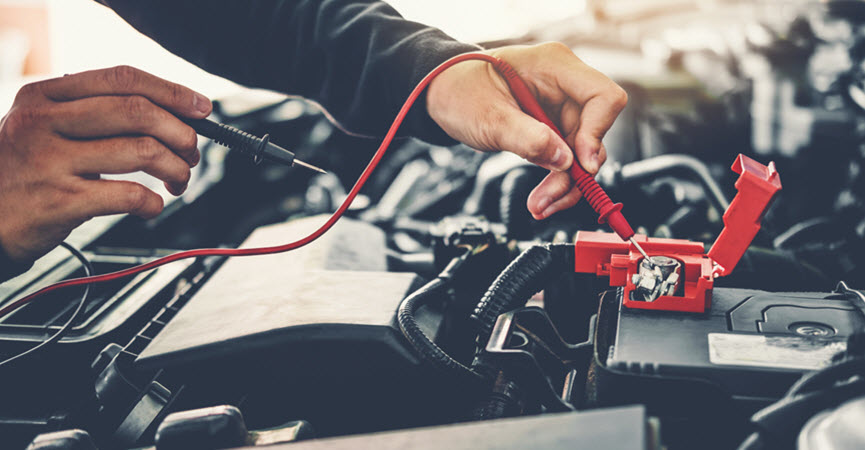
Fix All BMW Electronic Issues at JCL Automotive
Electronic issues are common in BMWs, but they can be addressed with the right knowledge and approach. By understanding the causes of these issues and knowing how to address them when they occur, you can keep your BMW running smoothly and enjoy its many features for years to come.
At JCL Automotive, we are proud to be the go-to repair shop for car owners in Hellertown, PA. Our technicians have the skills and technical know-how to diagnose and fix all kinds of electronic problems. You can schedule your car’s next service appointment now!
* Black BMW X5 Car image credit goes to: YuriyVlasenko.
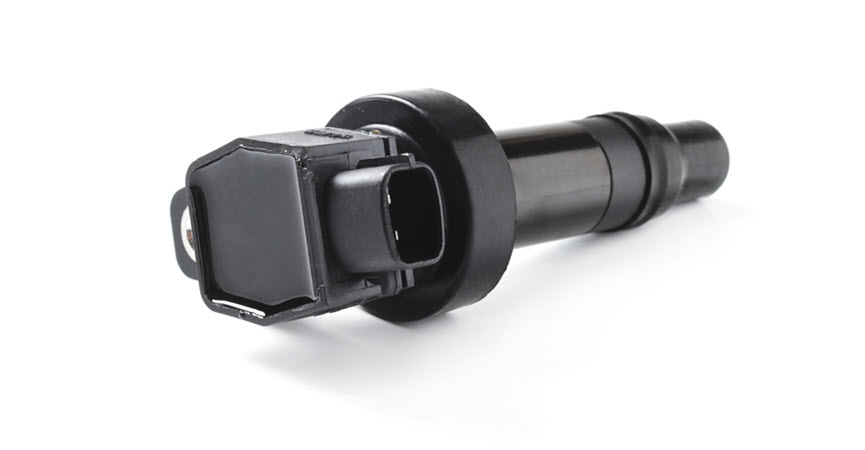
by Chris Limantour | Nov 30, 2022 | BMW Repair
Ignition coil failure is a common issue in BMWs, and it can cause a range of problems with your vehicle’s performance. An ignition coil in a BMW is an electromechanical device responsible for transforming the low-voltage energy from a vehicle’s battery into the thousands of volts of electricity. This is needed to power the spark plugs and ignite the air/fuel mixture in the combustion chamber.
This ignition coil is critical for efficient engine operation, as it creates sparks that drive ignition timing and facilitate proper combustion. Without a functioning ignition coil, your BMW may experience slower start-up times, decreased engine efficiency, and ignition system-related trouble codes. In short, it’s essential that you keep your ignition coil in good condition so that your BMW continues to run optimally.
It’s important to be aware of the signs of ignition coil failure so you can address the issue as soon as possible. In this article, we’ll go over some of the most common signs of ignition coil failure in BMWs, as well as what you can do to fix the problem.
How does an ignition coil problem show in my BMW?
One of the most common signs of ignition coil failure is engine misfiring. This can manifest in a variety of ways, including the engine feeling rough or shaking when it’s running, or the vehicle stalling or experiencing power loss. Misfiring can also cause a decrease in fuel efficiency and an increase in emissions. If you notice any of these issues with your BMW, it’s worth checking the ignition coils to see if they’re the cause.
Another sign of ignition coil failure is a decrease in power and acceleration. If your BMW feels sluggish or isn’t able to achieve its usual level of performance, this could be a sign that one or more of the ignition coils are failing. This can also manifest as a “bogging down” effect when you try to accelerate, or the engine feeling like it’s struggling to produce power.
A third sign to watch out for is a check engine light on your dashboard. This can indicate a variety of issues with your vehicle, but if you’ve noticed any of the other signs of ignition coil failure (such as misfiring or a decrease in power), it’s worth checking the ignition coils as a possible cause.
If you suspect that your BMW’s ignition coils are failing, the first thing you should do is have the vehicle inspected by a mechanic. They’ll be able to diagnose the issue and determine whether the ignition coils are indeed the problem. If they are, the mechanic will be able to replace them for you.
The Usual Reasons the Ignition Coil Fails
It’s worth noting that ignition coils can fail for a variety of reasons. One common cause is wear and tear over time, as the ignition coils are subjected to high voltage and heat on a regular basis. However, issues with the fuel system or other components of the vehicle can also cause ignition coils to fail.
Also, damaged ignition coils from physical contact with debris, leaks of coolant or oil onto the ignition coils, and bad wiring that prevents power from getting to the ignition coils.
Additionally, due to the complexity of parts used in a BMW, there may also be certain specific failures that are unique to BMW ignition systems. It is always important to have an understanding of what can cause ignition coil failure and take steps to avoid it occurring.
For these reasons, it’s important to be aware of the signs of ignition coil failure in your BMW so you can address the issue as soon as possible. This can help prevent further damage to your vehicle and keep it running smoothly. If you notice any of the symptoms we’ve described, be sure to have your BMW inspected by our certified BMW mechanics to determine the cause of the problem and get it fixed.
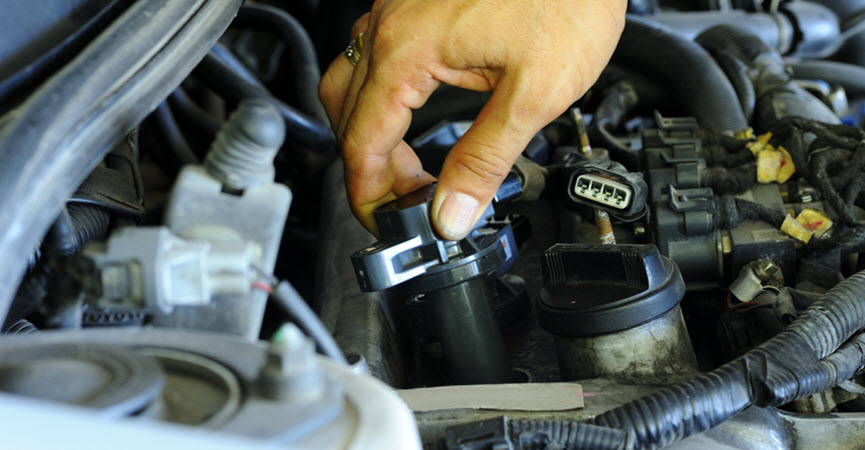
JCL Automotive
At JCL Automotive, our certified mechanics specialize in the most popular European vehicles on our roads. We offer complete maintenance programs that keep your car or SUV running in like-new condition so you can continue to drive a dependable and enjoyable vehicle. Visit us from the nearby communities and towns around Hellertown, PA to give your BMW the best care from our independent expert mechanics. Call or visit us today.
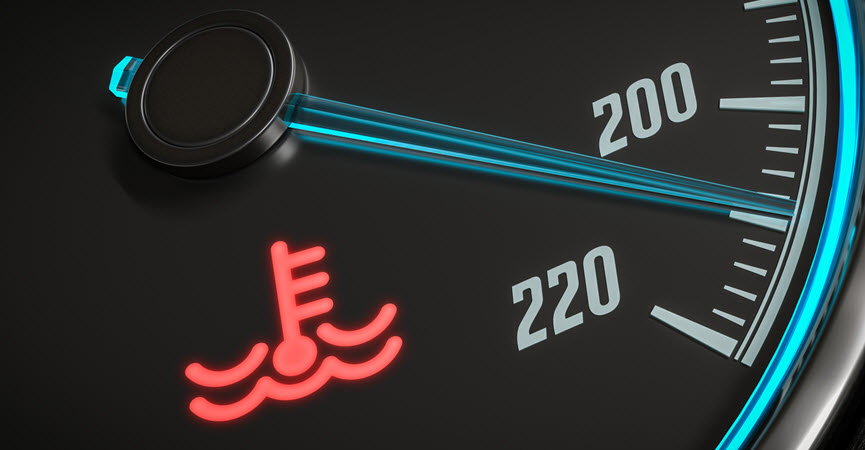
by Chris Limantour | Sep 23, 2022 | BMW Repair
BMWs are known for their luxurious feel and performance on the road, but what makes them run so smoothly? Part of it has to do with the BMW cooling system. The BMW cooling system has several components that work together to keep the engine at a regulated temperature, even when things start to heat up.
The main component of the BMW cooling system is the radiator. The radiator contains a liquid coolant that helps to dissipate heat from the engine. The coolant is circulated through the engine by a water pump, and then returns to the radiator where it can be cooled again. Finally, the fan helps to cool the radiator by blowing air through it. Together, these components work to keep the BMW engine running at a safe temperature.
In addition, BMWs have an oil cooler that helps to keep engine oil at a consistent temperature. By circulating oil through this cooler, BMWs are able to maintain optimal engine performance, even in hot weather. Together, these components make up the BMW cooling system, and help to ensure that BMWs can perform at their best no matter what the conditions are, unless something goes wrong and the coolant light illuminates on your dashboard.
Keep and Eye out for These Cooling System Problems
BMWs are known for their luxurious features and cutting-edge engineering, but even the best cars can have problems. When failure of the cooling system happens, it can lead to a number of problems, so it’s important to be aware of the warning signs.
One sign that the cooling system may be failing is an overheating engine. If the temperature gauge on the dash starts to climb into the red zone, or if the engine starts to smoke, this is a sign that something is wrong.
Another symptom of a cooling system problem is steam coming from under the hood. This is a sure sign that there’s too much pressure in the system and that coolant is escaping.
Other signs that the BMW’s cooling system may be failing include a drop in engine performance, strange noises coming from under the hood, and leaks in the cooling system itself. If any of these warning signs are present, it’s important to have the BMW checked out by our qualified mechanics as soon as possible to avoid more serious issues.
The Usual Culprits
There are several reasons why this might happen, including:
- A leak in the coolant reservoir: Over time, the seals around the coolant reservoir can break down, allowing coolant to leak out. This can cause the engine to overheat, leading to cooling system failure.
- A failed water pump: The water pump is responsible for circulating coolant throughout the engine. If it fails, coolant will not be properly circulated and the engine will overheat.
- A blocked radiator: If the radiator becomes blocked with debris or dirt, it will not be able to dissipate heat properly and the engine will overheat.
- A failed thermostat: The thermostat is responsible for regulating the temperature of the engine coolant. If it fails, the engine may overheat or run too cold, causing cooling system failure.
If you notice any of these issues with your BMW, it’s important to take it to a qualified mechanic as soon as possible to avoid further damage.
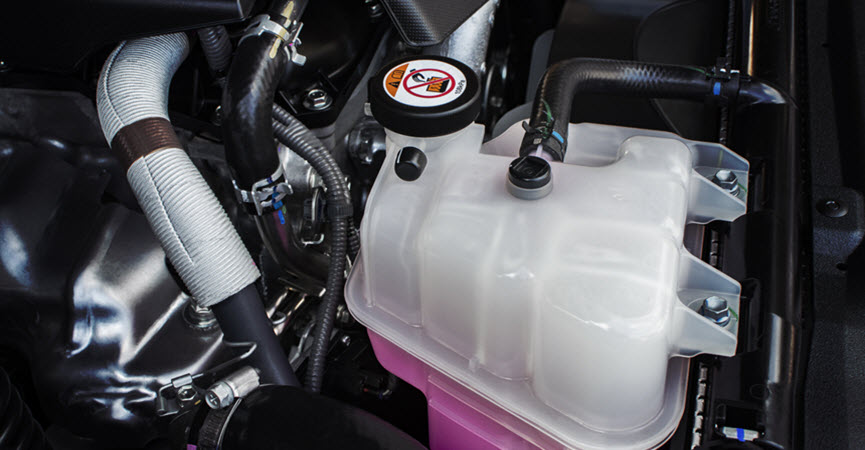
JCL Automotive
When it is time for service for your BMW, we want your experience at our shop to be a positive one. Since we first opened our doors in 2005 we’ve taken pride in providing our clients with a quality experience and building relationships that last through the years. We’re very proud to welcome back many repeat clients and referrals and we look forward to helping you take better care of your car as well. Our amenities are designed to with your convenience in mind and include:
- Complimentary Wi-Fi
- Ride to Work or Home
- After-Hours Drop-Off & Pick-Up
- Same Day Services
- And More!
Your BMW is an investment, and you want to ensure it stays in top condition on our Hellertown, PA roadways. Providing routine maintenance and servicing on demand is essential to keeping your BMW running smoothly for years to come. Call us today to schedule a convenient appointment!
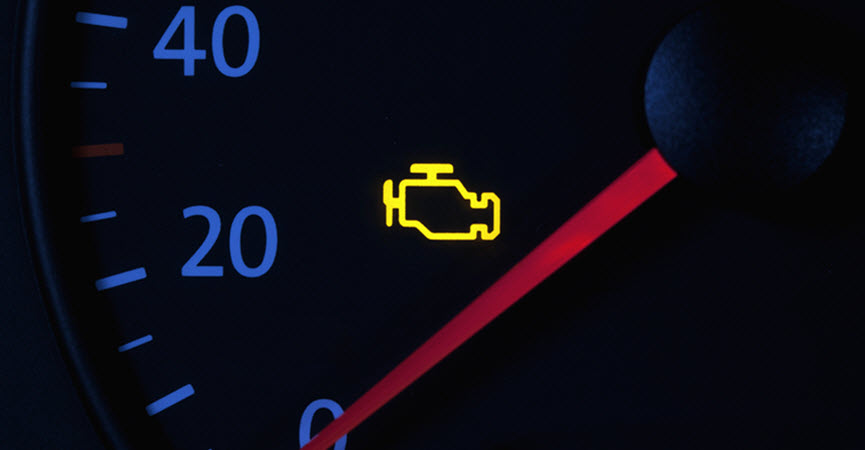
by Chris Limantour | Aug 20, 2022 | BMW Repair
BMW cars are incredibly intelligent and meticulously crafted machines. As a result, your BMW is equipped with various technologically-advanced systems to safeguard you and your vehicle against the adverse effects of severe components failure. The check engine light is one such system. Let’s discuss more about how the check engine light works and the types of component failures that can result in this warning light illuminating on your dashboard.
The Purpose of the Check Engine Light
The Check Engine Light (CEL), also known as Engine Management Light (EML), is a warning indicator found on the dashboard of your BMW. This light illuminates when more serious issues are detected within any of your vehicle’s systems or components that are connected to the engine and its exhaust system.
The CEL is connected directly to the Engine Control Unit (ECU) of your BMW, which is the vehicle’s main computer. As soon as the ECU detects an issue with one of the above systems, it sends out an error code and triggers the check engine light. The error code can then diagnose and repair the issue properly.
The severity of the problem determines a driver’s response to the CEL. Even if your vehicle appears to be operating correctly, you should reduce your speed and come to our certified repair center. You should pull over if the light illuminates red or if your vehicle does not appear to be safe. In that case, contact a tow service to bring your car to our repair facility.
Reasons Why the Check Engine Light (CEL) May Come On
Many factors can cause this essential warning light to illuminate. Here are a few of the most common reasons this may occur, how hazardous their impact might be to your car, and how you should handle it:
- Damaged Fuel Pumps: The fuel pump delivers pressurized fuel to the fuel injectors in the engine. If the fuel pump is damaged, it will not function appropriately, preventing the power from entering the machine correctly, resulting in rough running. As a result, the check engine light will be activated by the ECU, and your BMW engine is at a high risk of experiencing misfiring.
- Loose Fuel Caps: Drivers are most commonly guilty of this problem when distracted at the pump and do not correctly tighten their fuel cap. When the cap is loose, extra air can enter the tank and displace the pressure in the tank. Consequently, one of the many sensors in the car will detect a problem and alert the engine control unit. In general, this is the most common and easiest cause of the illumination of the check engine light and should be eliminated first.
- Worn Vacuum Hoses: The vacuum hoses are necessary to channel fresh air and exhaust around the engine to ensure optimum performance. The vacuum hose is made of rubber material, making them susceptible to breaking down due to the high temperatures inside a machine. This can eventually lead to cracks or deterioration. As a result, the engine’s sensors may report problems to the ECU because the precise balance of gases has been tipped, causing the check engine light to appear on the dashboard.
- Clogged Particulate Filters: The particulate filter is most commonly found on diesel-powered vehicles, although it is now introduced to gasoline-powered cars. As a result of combustion processes, particles such as soot are produced. The particulate filter is responsible for collecting these particles. Once the filter becomes clogged, soot will begin to settle within the engine and start to contaminate the delicate components. There is a pressing need to resolve this issue as soon as possible, as if the filter becomes damaged beyond repair, you are likely to face extensive costs.
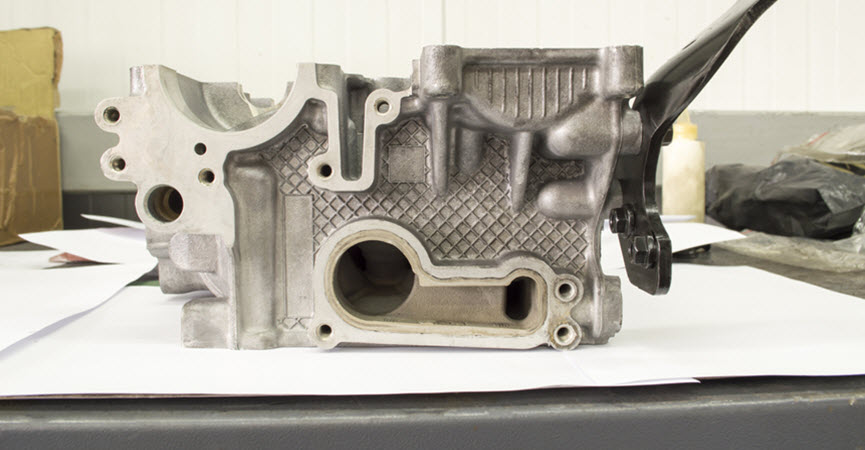
Come to JCL Automotive in Hellertown for Expert Service
JCL Automotive has dominated the automotive repair market in the region for over ten years, as the largest independent provider of automotive services. Our service department is the best choice for maintaining the performance of your BMW.
We are pleased to offer Hellertown and nearby residents the services that you have come to expect along with many more! JCL Automotive also offers customers inspections and emissions certifications in Pennsylvania. Thanks to our certified mechanics and our staff’s capabilities, we expertly handle all of your BMW service needs. Call us today to schedule an appointment!
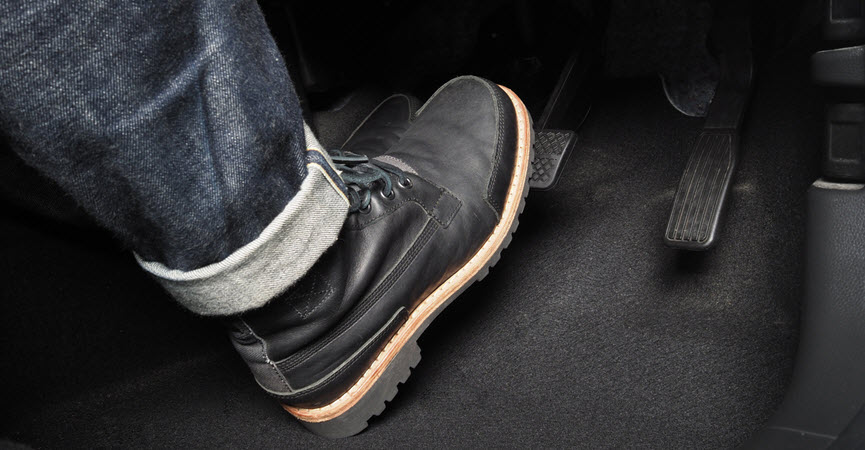
by Chris Limantour | Jul 3, 2022 | Auto Maintenance, BMW Repair
The BMW is a luxury car built with high performance, and every BMW driver wants to enjoy every comfort it has to offer and trust in the safety features built into their model. When we think of safety in a car, the first thing that comes to mind is the brakes. If your brakes are not in good order, then you are putting yourself and other road users at risk of an accident.
It is important to note, however, that driving behavior affects the life of a brake considerably. Drivers who often come to a sudden halt will need to change their brake pads more frequently than those who cruise to a stop.
The brakes of cars moving slowly through cities are more easily worn than those of cars traveling on wide rural roads, and the brakes of cars traveling downhill are worn down faster than those traveling on flat suburban roads. For your car’s brakes to perform properly when you need them, regular maintenance is required.
The Benefits of Regular Brake Maintenance
Here are some benefits you can expect as a driver when you have your vehicle’s brakes serviced on a regular basis.
- Quiet Ride: Having your brakes serviced can reduce the amount of stress and hassles you encounter on a daily basis by providing a calmer, more peaceful environment in your car. The smoother ride that your properly maintained brakes provide will lessen noise from outside your cabin, allowing you to enjoy conversation or music instead of background noise on your journey. If you wish to enjoy this tranquility, have your BMW brakes serviced.
- Improved Fuel Efficiency: You might also save money on gas if you have well-maintained brakes. If your brakes work properly, less energy is wasted, which means less gasoline is required to keep your car on the road.
- More Accurate Driving: You will enjoy driving more when your brakes function properly, as they will enhance your vehicle’s ability to manage tight corners and other maneuvers. Having more control over your car will make your journey to your next destination more enjoyable.
- Better Driving Experience: One of the most important parts of vehicle safety is the ability to stop immediately after you apply the brake. If you maintain your brake pads and other components of your braking system, it will improve their reactivity, allowing you to respond to changing road conditions more efficiently. It will prevent you from having a potential mishap and keep you and others safe.
- Save money: It is in everyone’s interest to have cheaper car maintenance. Getting preventative brake service will save you money in the long run compared to waiting for emergencies. A good brake system can prevent damage to other parts of your car, which can save you money in the long run.
- Extend the Life of Your Brakes: If you don’t maintain your vehicle’s brakes properly, you’ll have to replace them very often. You can reduce the amount of money you spend on parts replacement by maintaining your brakes with routine maintenance visits.
- Maintain the Legality of Your Vehicle: A car must satisfy specific requirements in order to be legally certified to drive on the road. You need to carry out regular inspections to ensure that all of its systems are functioning well. Checking the condition of your brakes is part of that inspection. Maintaining your vehicle’s brakes will ensure that it passes its inspection.
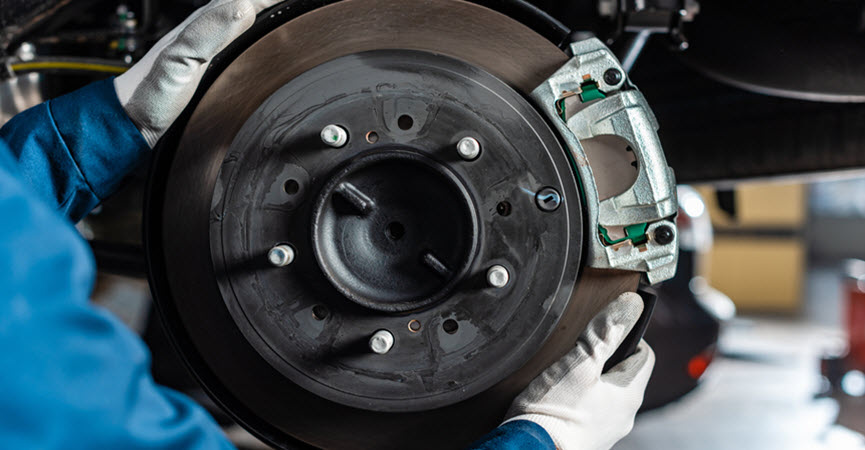
Get the Best Brake Repairs in Hellertown at JCL Automotive
Whether your BMW needs routine maintenance, a new brake pad, or other brake repairs, you can rely on the professionals at JCL Automotive! We are conveniently located in Hellertown, PA and we serve drivers from the neighboring areas. We specialize in BMWs and only utilize BMW OEM parts.
Just like you go to the doctor for a routine check up, your BMW needs it as well. Routine maintenance is the key to longevity for anything that has a lifespan. When you go in for a tire rotation, you should have your brakes tested, too.
Come to our facility and let our service specialists inspect your car to maintain it in the finest possible condition. Our experience and skill will enable them to detect and handle any issues before you have a problem on the road. Call us now to schedule an appointment!
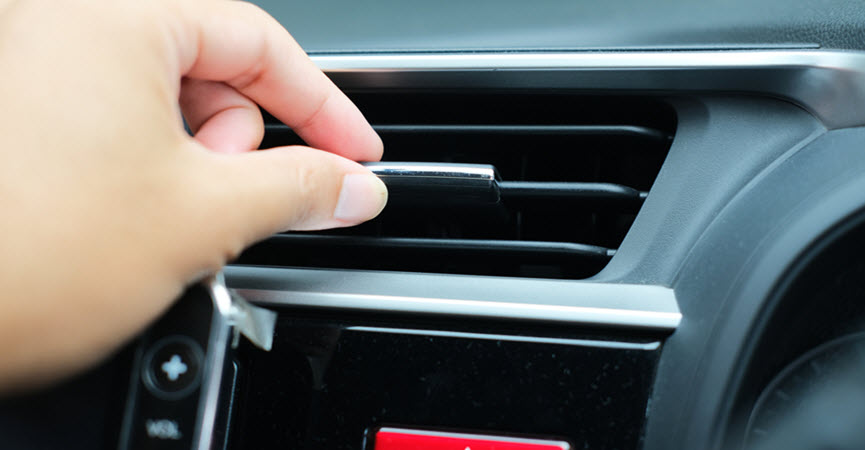
by Chris Limantour | Jun 17, 2022 | BMW Repair
HVAC is an acronym for Heating, Ventilation, and Air Conditioning, and it is responsible for regulating the temperature in the cabin of your BMW. Apart from providing air conditioning or heating, it also helps defrost the windshield for clearer vision.
If the system is not adequately maintained and serviced, it can develop problems. Depending on the time of the year it fails, your driving experience can become unpleasant and frustrating. Knowing the symptoms to look for will help save you from the brutal summer heat or freezing winter cold. Let’s dive deeper into how to recognize a failing HVAC system, its causes, and how to solve the problem.
Symptoms of HVAC Failure in your BMW
One or more of the following signs may indicate that your vehicle’s HVAC system is failing.
- Little or No Airflow: One of the first indicators is that the airflow becomes significantly lower than expected. You may notice that you need to increase the speed of your blower to achieve the same comfort level previously. This is one of the first indicators of the problem, and you may also discover that your defrosters are not operating properly.
- Unusual noises when the fan is on: When the fan is turned on, you may hear strange noise coming from inside the vent. You may notice popping or slapping This is usually the result of an object being sucked in the vent. You may also hear a spinning noise that gets louder as the heating and cooling settings are increased. You may be able to dislodge a foreign object that you see, but if the vent is blocked further down the system, it will require a professional to inspect it.
- Runs at a single speed: If the problem persists for a long time, you may lose the ability to change the settings. It may be difficult to switch it up to the highest setting. Sometimes, the blower will not work at all, even when you turn up the setting to try to get more cool/warm air to blow out.
- Inefficient air temperature exiting vents: It’s common for your air conditioner to take a few moments to cool down when you turn it on, although this usually requires less time in a BMW car due to its strong efficiency. If you observe that the air never cools enough, it’s possible that you have a Freon leak. This can be replaced at a shop for you.
Common Causes of HVAC Blower Failure
Your BMW’s HVAC blower can fail for a variety of reasons.
- Blower Motor Relay Failure: The heating, ventilation, and air conditioning system, as well as the blower, are made up of many components that all work together collectively to keep you comfortable. When one of these components fails, the blower and system can degrade or stop working entirely. To enable the system to function, the blower system relies on many electrical components and connections. When one of these relays breaks down, the blower motor loses its ability to push cool or warm air through the vents. This usually needs replacement of the motor.
- Wear and tear: The blower in your HVAC system is subject to typical wear and tear. A vehicle’s natural breakdown of parts occurs over its lifetime. Although it is irritating to have to replace parts on your BMW, it is unavoidable. Components deteriorate and break as a result of regular usage, the passage of time, and exposure to the elements.
- Manufacturer’s defect: Occasionally, a problem arises during the production process. Even though BMW has high standards for all of its automobiles, errors do occur. Unknown to BMW, a defective component may have slipped through the inspection process.
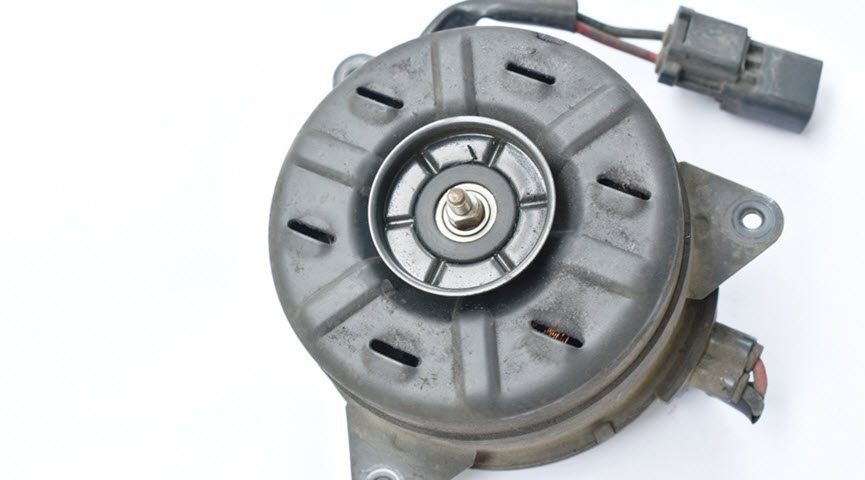
JCL Automotive for All Your BMW Service and Repairs Needs
While your HVAC system is expected to last your vehicle lifetime, extreme temperatures could cause the failure of the system. When it comes to maintenance and part replacement, BMWs require precision and accuracy. At JCL Automotive, our expert mechanics utilize factory-grade tools and equipment to deliver quality service and repairs.
If you drive a BMW and live in Hellertown, PA or the surrounding areas, schedule an appointment with our trained professionals! Whatever the problem, we will work directly with you to get you back on the road as quickly as possible while maintaining the greatest level of care.
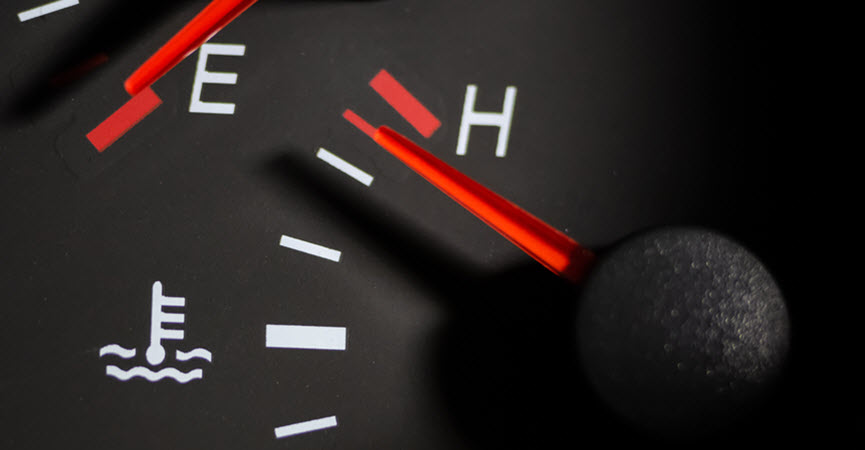
by Chris Limantour | Apr 15, 2022 | BMW Repair
The water pump is the heart of a BMW’s cooling system. It circulates the coolant through the engine block, cylinder heads, and radiator. If it fails, your BMW will overheat and cause major (and expensive) damage to the engine. Let’s discuss the functions of the water pump in your BMW, why it may fail and what to do when it fails.
What is the function of the water pump in a BMW?
The water pump is responsible for circulating coolant to keep your engine cool. (Coolant is usually made of antifreeze and water combined.) The pulley on the front of the water pump spins the impeller inside. The impeller is designed to push coolant liquid through the cooling system. As it passes through the system, it absorbs heat from the engine and then returns to the radiator to dissipate that heat.
Like many parts of a BMW, there are two types of water pumps: mechanical and electric. Mechanical pumps have been used for years, but electric pumps are quickly replacing them.
- Mechanical Water Pump: A mechanical water pump has a simple design with an impeller driven by a belt and pulley, usually attached to either the crankshaft or camshaft. As long as the engine is running there will be coolant being pumped throughout the cooling system.
- Electric Water Pump: An electric water pump runs only when needed by using an electric motor instead of a belt. When you start your car and begin driving, an electric signal tells the motor to turn on, which begins pumping coolant throughout the cooling system.
The Most Common Causes of a Water Pump Failure
- Wear and Tear: The most common reason for a water pump failure is due to age/wear. The bearings in the water pump eventually wear out, which causes the shaft and impellers to become loose. The loose pieces then rattle around the inside of the pump and cause damage to the internal components. If you are hearing a rattling or knocking noise coming from your engine bay, it’s a good idea to check your water pump for any signs of damage.
- Poor cooling system maintenance: The cooling system is responsible for circulating coolant through your engine to keep it at the right temperature. It also lubricates the bearings of the timing belt (or chain). It is important to check that this system is working properly without faults, so timely maintenance is necessary.
- Coolant leaks: Coolant is what keeps everything cool in your car’s engine. If you have a leak, this means that there won’t be enough coolant circulating through the system to properly and your engine can overheat. This can cause major damage.
- Worn Seals: Like most pumps, the water pump in your BMW has seals that prevent coolant from leaking out when it is being pumped through the engine block and cylinder heads. As those seals begin to wear out, you may begin to see puddles of coolant underneath your car after it has been parked for any length of time. Eventually, those worn seals will cause your water pump to fail altogether if they are not repaired or replaced on time.
- Coolant contamination: There could be debris floating around in your coolant reservoir and hoses. Dirt can build up on the impeller blades over time and cause clogs, leaks, and thick coolant.
Signs Your BMW Water Pump has Failed
If you notice your engine temperature gauge rising or steam coming out of your hood, pull over immediately and shut off your car. You should then call for a tow as soon as possible. You do not want to drive with an overheating engine, since it can lead to serious damage and expensive repairs.
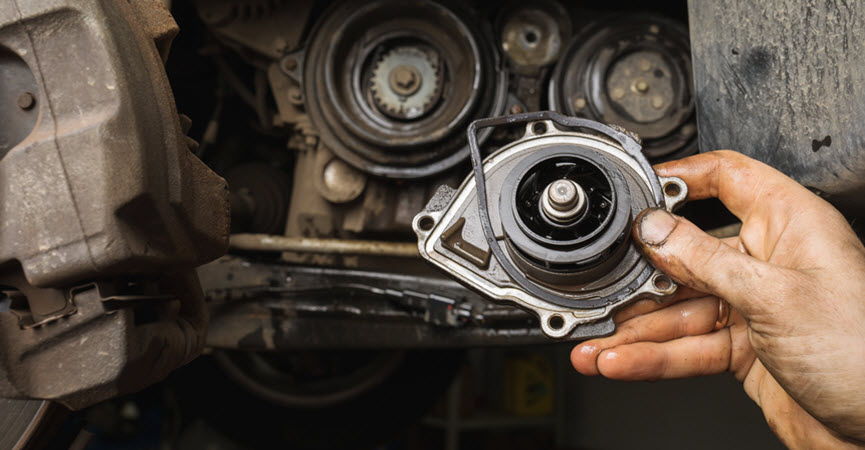
JCL Automotive can Help
As a leading service center for European auto owners, JCL Automotive prides itself on product knowledge, staff experience, and customer service. Located in Hellertown, PA, our technicians have the skills and product knowledge to work on a variety of European and import vehicle models including your BMW.
Our shop is outfitted for quick, convenient, and affordable maintenance on European brand vehicles. Call us on 484-851-3390 or stop by our shop today, let’s help get your BMW back on the road as soon as possible.






























